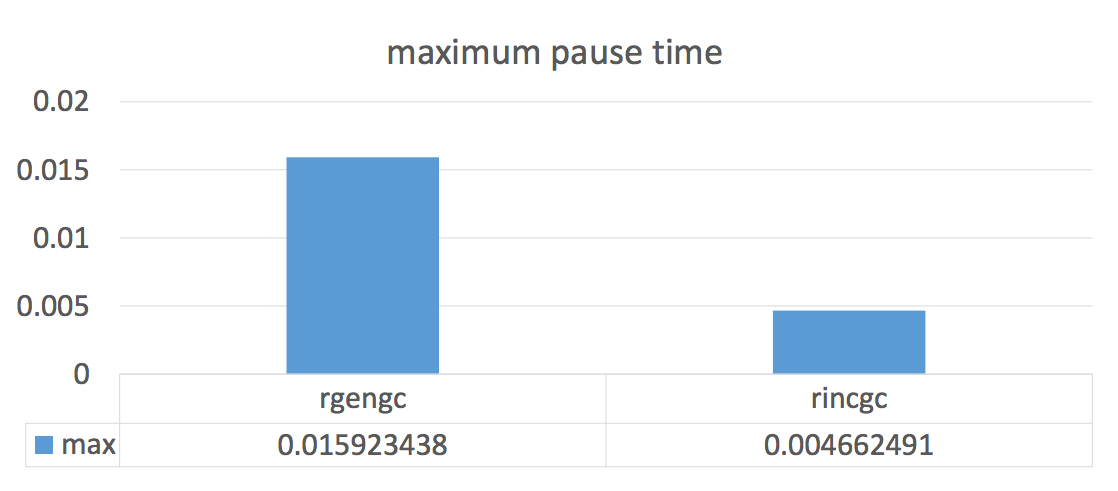Today at RubyConf 2014, Koichi Sasada (Ko1) gave a detailed description of some massive speedups that are going to be released as part of Ruby 2.2. In addition to some minor changes to APIs and internal code cleanups, the the big wins for Ruby 2.2 appears to be a series of performance optimizations: a massive speedup of the performance of keyword arguments, the long-desired addition of garbage collection for Ruby symbols, and not least, the addition of incremental garbage collection, which promises a huge speedup in GC pause times for most Ruby applications.
Keyword Arguments on Speed
Keyword parameters are a relatively recent addition to Ruby, and with major libraries like Rails promising a migration to kwargs in upcoming versions, the performance of function calls containing kwargs is going to be important. So it was good news when Ko1 announced that these calls will be getting 15 times faster in Ruby 2.2. He showed a rather covincing test case where a test case of 10 million calls to a kwarg-containing function went from 17 seconds in Ruby 2.1, to just over 1 second in Ruby 2.2. That kind of performance jump is going to make Ruby 2.2 a required upgrade for many users of the new Ruby syntax!
Ruby Is Finallly Trashing Symbols (sorta)
The next major improvement announced by Ko1 was the long-desired, and much-needed addition of garbage collection for symbols in Ruby 2.2. This is an issue that has bitten users of Rails and other long-running server processes that make use of a lot of symbols: Ruby has historically never collected garbage symbols, which meant that they’d gradually accumulate, eating up memory until the server was restarted. In Ruby 2.2, symbols will be garbage collected like all other Ruby objects, which will come as welcome news to most Ruby users.
Ko1 gave the following example:
before = Symbol.all_symbols.size
1_000_000.times{|i| i.to_s.to_sym} # Make 1M symbols
after = Symbol.all_symbols.size; p [before, after]
# Ruby 2.1
#=> [2_378, 1_002_378] # not GCed
# Ruby 2.2 (dev)
#=> [2_456, 2_456] # GCed!
All Your Garbage Are Belong to Us…Eventually
But the biggest win for Ruby users in 2.2 has to be the addition of incremental garbage collection to MRI. Users of the 2.1 series have been enjoying a speedup owing to the addition of generational collection to the interpreter, but this was only a first step. Generational GC dramatically improves the performance of minor garbage collection pauses, but the interpreter still has to “stop the world” to perform expensive, “major” collections periodically. These pauses can be very expensive – tens of milliseconds or more – so it’s been a long-held goal to reduce their cost.
In Ruby 2.2, the same amount of work is (obviously) being done, but the cost of a major collection is now spread out – hence, “incremental” garbage collection – so that the worst-case GC time is dramatically improved. Bottom line: real-world, worst-case garbage collection performance of Ruby applications should have dramatic improvements. Ko1 showed a test case where the worst-case GC pause time dropped from 16ms to about 3ms – slightly better than a 500% improvment in worst-case collection times!

(…but don’t take our word for it!)
Ko1 has been nice enough to post his slides from the talk, so you can read through all of the details on how these performance improvments are being achieved. Check them out!